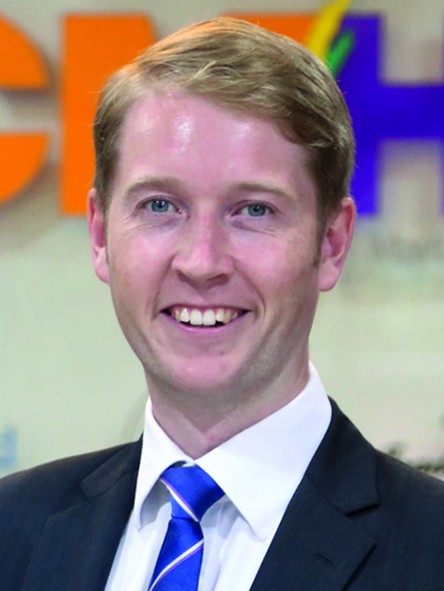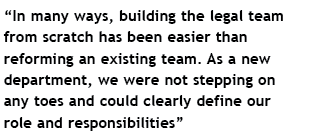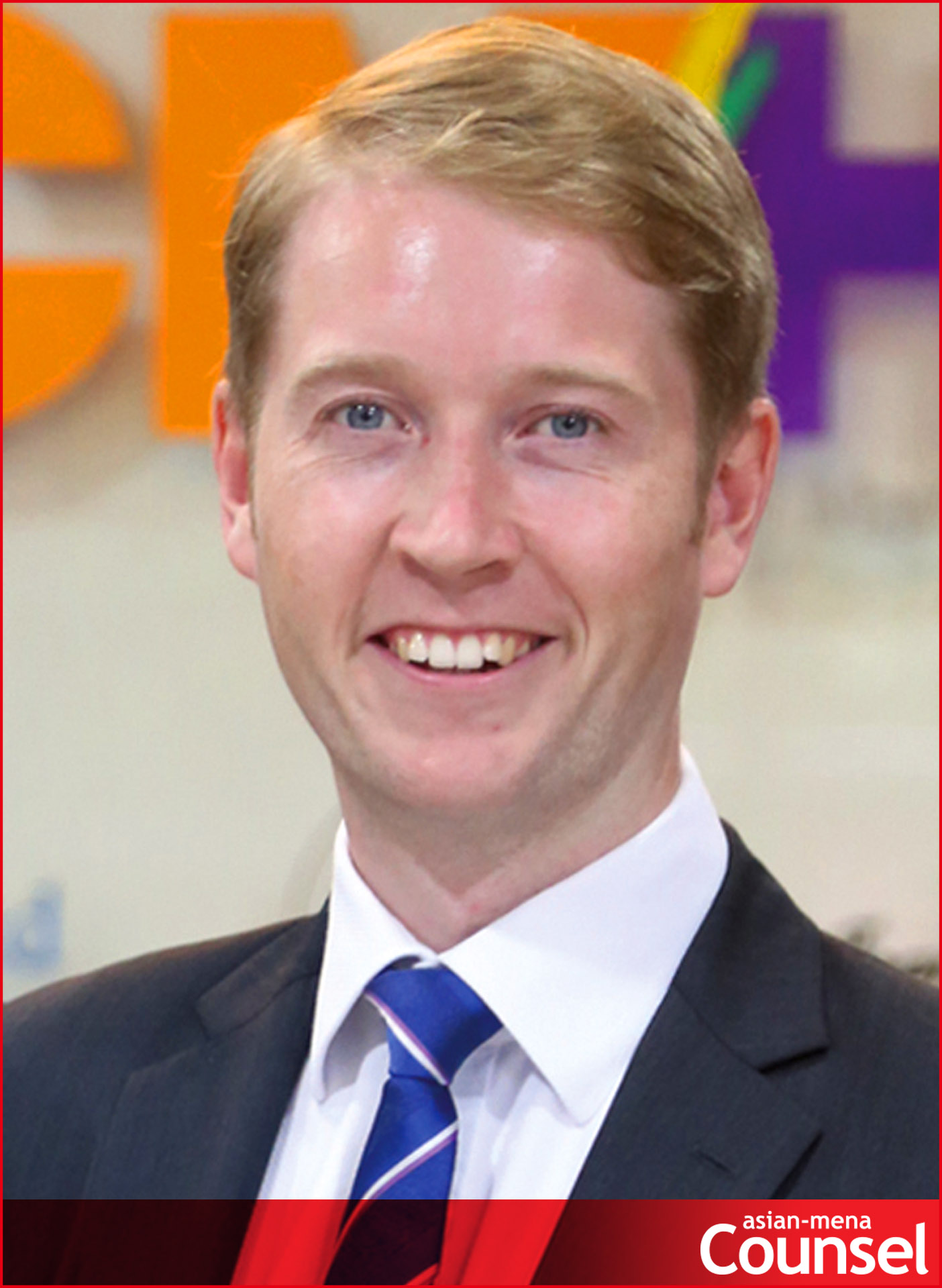 A former private practice lawyer who had spent his entire career in major international financial centres, Robin Scott discusses his transition to an in-house role in one of the world’s most exciting frontier economies: Myanmar.
A former private practice lawyer who had spent his entire career in major international financial centres, Robin Scott discusses his transition to an in-house role in one of the world’s most exciting frontier economies: Myanmar.
ASIAN-MENA COUNSEL: Can you describe your professional background and your current role?
Robin Scott: Until moving to Myanmar, my entire career was with Freshfields Bruckhaus Deringer in London, New York and then Hong Kong. In 2012, I was working in the corporate department in Hong Kong as the democratic transition in Myanmar was taking shape. The EU and the US had just suspended sanctions and some of our multinational clients were considering entering or re-entering the market. I advised one client, a multi-national manufacturer, to obtain its permit from the Myanmar Investment Commission and set up its Myanmar operations. Over the next 18 months, I advised several other clients on their investments in Myanmar. Through my Myanmar contacts, I was introduced to City Mart Holding (CMHL). They were looking to establish a legal department as they were beginning discussions with International Finance Corporation, part of the World Bank Group, about financing. I made the move from Freshfields to CMHL in May 2014.
CMHL is the market-leader in the retail sector in Myanmar. It operates brands across the country including Ocean hypermarkets, City Mart and Marketplace supermarkets, Seasons bakeries and City Care health and beauty stores. One of CMHL’s aims is to be the first-choice partner for international companies investing in Myanmar. A large part of my role is therefore setting up these arrangements, from financing deals such as our IFC partnership, to joint ventures, such as our partnership with the Jardine group to operate Pizza Hut restaurants. I am also tasked with implementing international standards of compliance and corporate governance within the group. On the day-to-day level, I deal with all legal and contractual matters from leases for new stores to protecting our intellectual property rights.
AMC: How big is the team you manage and how is it structured?
RS: Having even one in-house lawyer is a relatively new concept for most Myanmar businesses therefore we need to operate on a lean basis. I am supported by a very senior Myanmar lawyer, Daw Phyu Phyu Chone, and between us we manage all legal matters for the group. I take the lead on international transactions while Daw Phyu Phyu Chone handles local matters, such as property transactions and employment issues.
AMC: What are the biggest challenges facing an in-house lawyer in Myanmar?
RS: Myanmar’s decades of isolation from other countries has resulted in a unique business and legal culture. It’s not enough to know the law: lawyers here also need to understand how the government departments actually operate in practice. Coming from highly developed jurisdictions, it can be frustrating having so much uncertainty. Another challenge is that the rule of law was not valued during the long period of military rule. Instead of relying on formal contracts, the business culture in Myanmar has traditionally focused on personal relationships. With the influx of foreign investors this approach is now having to change.
AMC: What attracted you to working in a frontier market?
RS: I was attracted to Myanmar in particular because of the huge potential the country offers in all sectors. It has always been a resource-rich country but remains extremely under-developed because of its political situation since the end of colonial times. I am excited to be witnessing the very start of its transition to a democratic, open society. Many of the transactions I work on have never been done before in the country so it is not possible to just pull a precedent off the shelf. Learning how to put together a deal from the ground up, working out how international practices can fit within Myanmar law, has been a fascinating learning experience for me.
AMC: What are the most important qualities of a good general counsel?
RS: Myanmar is such a dynamic market that it is essential that a general counsel understands not only the current business but also the plans and strategies that are developing. Generally other managers here are not used to working in a modern business structure and they do not always involve the legal team as early as they should. My role is therefore to be close to their business planning so that I can proactively assist them to structure their new ventures as efficiently as possible and help them to identify risks.
AMC: How have you found the expe rience of building a legal team from scratch?
rience of building a legal team from scratch?
RS: In many ways, building the legal team from scratch has been easier than reforming an existing team. As a new department, we were not stepping on any toes and could clearly define our role and responsibilities from the start. We put in a lot of effort to educate other managers about the benefits of having a legal team and how we are here to help, and not hold back, the business.
AMC: How important have external firms been and has your perception of them changed since moving in-house?
RS: I have good relationships with many firms in Yangon, mainly through the British Chamber of Commerce Myanmar, of which I am a director. Through the Chamber’s Legal Working Group, in-house and private practice lawyers meet frequently to discuss new legal developments. My experience in-house has allowed me to identify private practice lawyers who really understand the business sectors in which they work. High level, technical legal skills are not useful to businesses here unless they are accompanied by a strong commercial sense which allows the legal advice to be put into the local context.
AMC: What is your outlook for how the legal market will develop in Myanmar?
RS: A strong legal market is essential for Myanmar’s development. Investment will not flow as freely if investors are uncomfortable with the legal risks. The legal market is responsible for understanding these risks and giving clear advice to investors. For this reason, the strength of the legal market will mirror the broader economy. Myanmar has a good chance of high single-digit or even double-digit GDP growth over the coming years. I expect the corporate and commercial legal market to grow at a corresponding rate.
AMC: What advice can you give to young lawyers starting out in their careers today?
RS: My key advice is to remain as open-minded and curious as possible. Very few international lawyers in Myanmar would have predicted, at the beginning of our careers, that we would be participating in the early stages of the reform of such an interesting and promising country. Patiently developing the core legal skills while identifying what areas you are most interested in, can lead to many fascinating opportunities.
AMC: What skills should they aim to acquire and what are the most promising areas of practice to focus on?
RS: I don’t think it is wise to specialise too early. Try as many different areas and acquire as wide a variety of skills as possible until you discover what interests you. The most promising practice area for each lawyer will be the one he or she is most interested in.
AMC: What is your hinterland — what are your interests outside of the legal profession?
RS: Compared to just five years ago, there are now many more extra-curricular options for Yangon expats. I try to play sport as much as possible, tennis and golf during the dry season and hockey and running year-round. If I have time, I get out of Yangon to explore further afield. More and more areas of Myanmar are being opened to travellers and it is fascinating to experience places that have been off-limits to tourists for decades.
Note: The inaugural In-House Community Congress Yangon will take place at the Sule Shangri-La in November 2017, featuring practice workshops and thought-leading discussion. For more information on the gathering contact Tim Gilkison at tim.gilkison@inhousecommunity.com




















